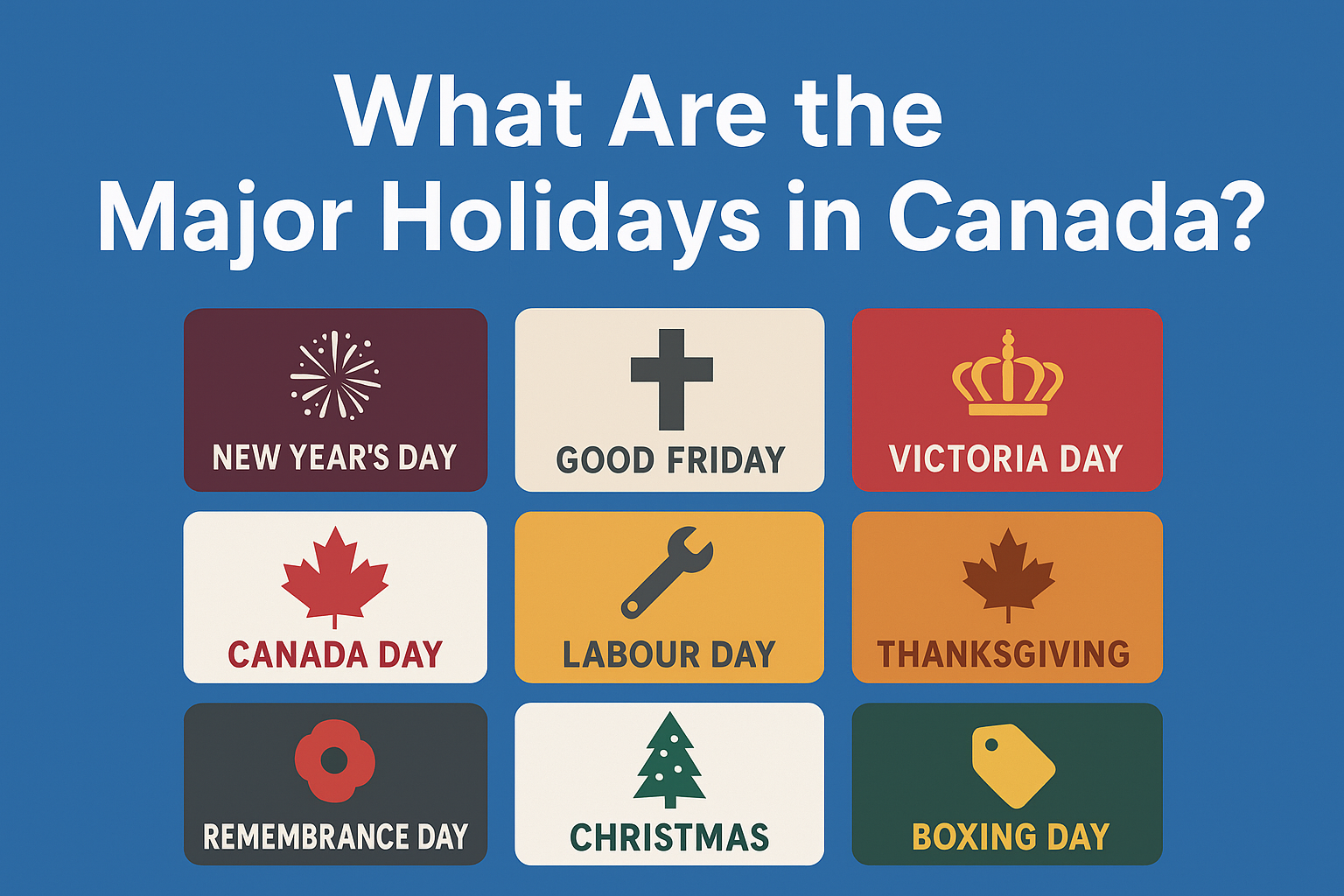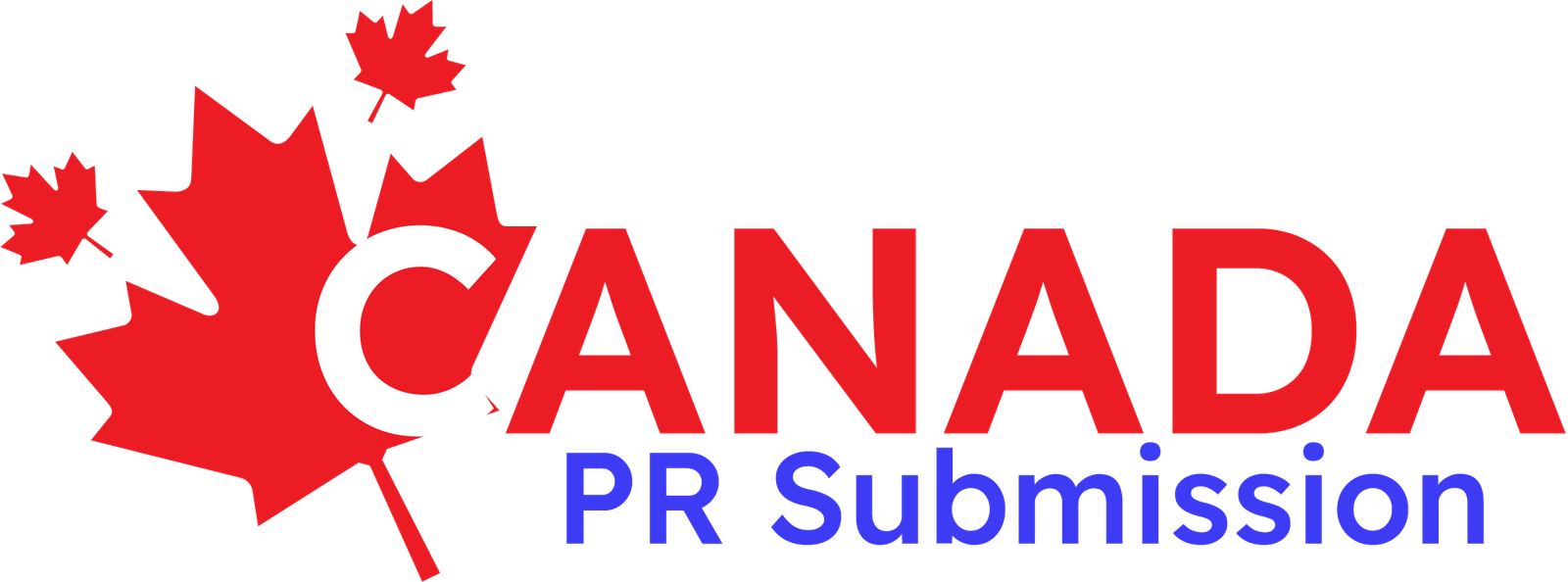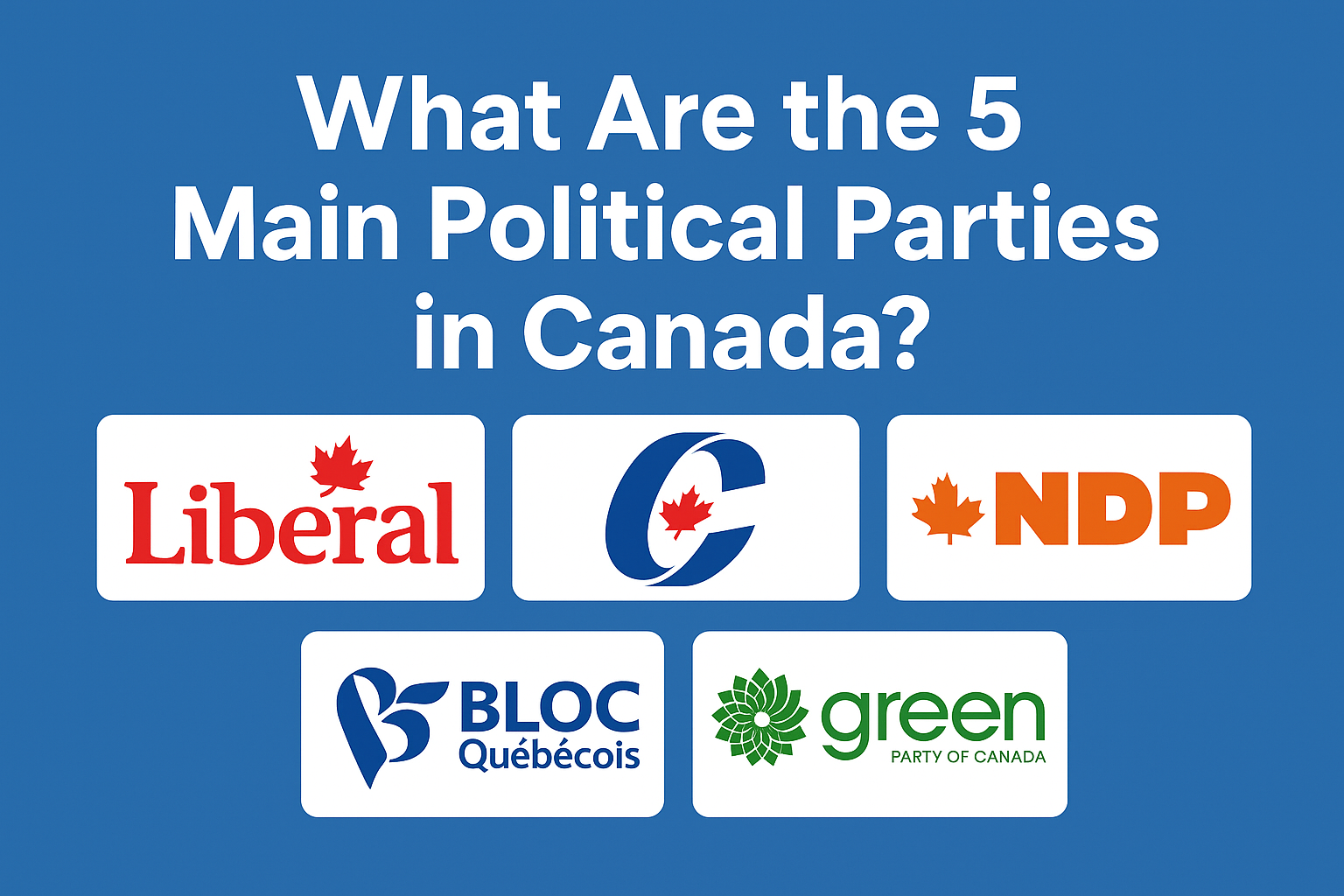What Are the Major Holidays in Canada?

Canada is known for its cultural diversity and deep-rooted traditions that reflect both its history and multicultural identity. The country celebrates a wide range of holidays, from national observances that unite the country to provincial celebrations that highlight regional culture.
Understanding the major holidays in Canada helps residents, visitors, and newcomers appreciate the country’s values and traditions. Whether you’re planning travel, business operations, or simply looking to join in local festivities, this guide provides a detailed overview of Canada’s most important holidays.
1. New Year’s Day – January 1
Overview
New Year’s Day marks the beginning of the calendar year and is celebrated nationwide. It’s a statutory holiday across all provinces and territories. Canadians welcome the new year with fireworks, family gatherings, and public events.
Traditions and Activities
- Countdown celebrations on New Year’s Eve
- Fireworks in major cities such as Toronto, Vancouver, and Ottawa
- Family brunches and winter festivities
New Year’s Day symbolizes renewal, optimism, and new beginnings, setting the tone for the year ahead.
2. Good Friday & Easter Monday – March or April
Overview
These holidays commemorate the Christian observance of Easter, celebrating the crucifixion and resurrection of Jesus Christ.
Good Friday is a federal statutory holiday, while Easter Monday is a public holiday for government employees and some organizations.
Traditions and Activities
- Church services and religious processions
- Easter egg hunts and chocolate treats for children
- Family dinners and springtime celebrations
Easter is both a religious and cultural event, symbolizing hope and renewal across Canada.
3. Victoria Day – Monday Before May 25
Overview
Victoria Day honors the birthday of Queen Victoria, the monarch under whom Canada became a confederation. It’s celebrated on the Monday before May 25 and is considered the unofficial start of summer.
Traditions and Activities
- Fireworks displays and parades
- Opening of summer cottages and parks
- Gardening and outdoor barbecues
Canadians also use this long weekend to celebrate national pride, as the holiday is closely tied to the country’s historical ties to the British monarchy.
4. Canada Day – July 1
Overview
Canada Day is the country’s most important national holiday, celebrating the Confederation of Canada in 1867. It marks the unification of Ontario, Quebec, Nova Scotia, and New Brunswick into one nation.
Traditions and Activities
- Fireworks, concerts, and parades
- Public festivals and flag-raising ceremonies
- Wearing red and white, the national colors
Canada Day reflects national unity, freedom, and pride, bringing Canadians together across all provinces and territories.
5. Labour Day – First Monday in September
Overview
Labour Day recognizes the contributions of workers and labor unions in Canada. It is a national public holiday celebrated on the first Monday of September.
Traditions and Activities
- Parades, community picnics, and barbecues
- End-of-summer festivities
- Back-to-school preparations
Labour Day symbolizes the rights and achievements of Canadian workers and serves as a relaxing break before the fall season begins.
6. Thanksgiving Day – Second Monday in October
Overview
Thanksgiving in Canada is celebrated earlier than in the United States, on the second Monday of October. It’s a time to give thanks for the harvest and the year’s blessings.
Traditions and Activities
- Family dinners with turkey, stuffing, and pumpkin pie
- Outdoor activities like hiking and apple picking
- Giving thanks for prosperity and family
While rooted in harvest traditions, Canadian Thanksgiving emphasizes gratitude, community, and togetherness.
7. Remembrance Day – November 11
Overview
Remembrance Day honors the men and women who served and sacrificed in the Armed Forces. It is observed every November 11, marking the end of World War I in 1918.
Traditions and Activities
- Wearing red poppies as a symbol of remembrance
- Attending ceremonies at war memorials and cenotaphs
- Observing a two-minute silence at 11 a.m.
Remembrance Day is a solemn occasion that reminds Canadians of the cost of peace and freedom.
8. Christmas Day – December 25
Overview
Christmas Day is one of Canada’s most cherished holidays, celebrating the birth of Jesus Christ. It is a nationwide statutory holiday, observed with religious services, family gatherings, and festive decorations.
Traditions and Activities
- Exchanging gifts and decorating Christmas trees
- Attending church services and community events
- Enjoying traditional meals with family
Christmas in Canada combines religious significance and joyful tradition, reflecting both Christian heritage and multicultural celebration.
9. Boxing Day – December 26
Overview
Boxing Day follows Christmas and is celebrated as a public holiday in most provinces. Historically, it was a day for giving to the less fortunate, but today it’s best known for shopping and post-holiday sales.
Traditions and Activities
- Major retail sales and discounts
- Family relaxation and sports events
- Donations to charities and community service
Boxing Day has evolved into a modern shopping event, marking the end of the Christmas season with a spirit of giving and generosity.
Summary Table of Major Canadian Holidays
| Holiday | Date | Type | Key Significance |
|---|---|---|---|
| New Year’s Day | January 1 | National | Beginning of a new year |
| Good Friday | March/April | National | Christian observance |
| Victoria Day | Monday before May 25 | National | Honoring Queen Victoria |
| Canada Day | July 1 | National | Celebration of Confederation |
| Labour Day | First Monday in September | National | Worker recognition |
| Thanksgiving | Second Monday in October | National | Gratitude and harvest |
| Remembrance Day | November 11 | National | Honoring veterans |
| Christmas Day | December 25 | National | Birth of Christ |
| Boxing Day | December 26 | Public | Post-Christmas celebrations |
Conclusion
Canada’s holidays offer a glimpse into the nation’s rich heritage and cultural diversity. From historic commemorations like Remembrance Day to festive occasions such as Christmas and Canada Day, each celebration carries deep meaning and fosters unity across communities.
Whether you’re a visitor or a lifelong resident, understanding these major holidays in Canada enhances your appreciation of the country’s traditions, values, and shared identity.



